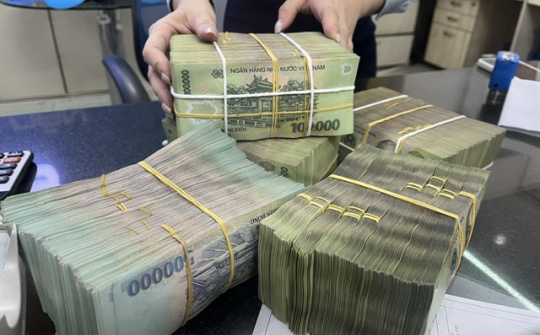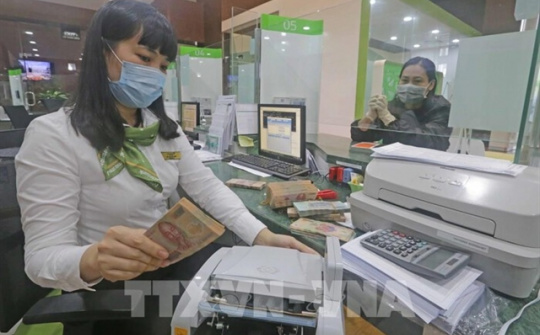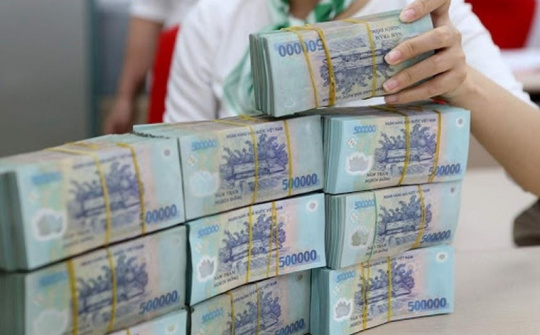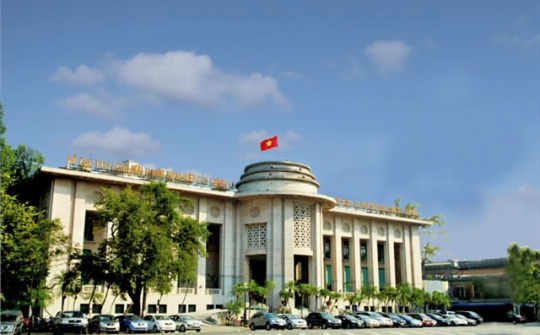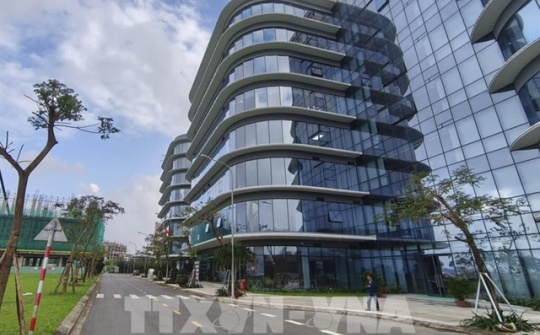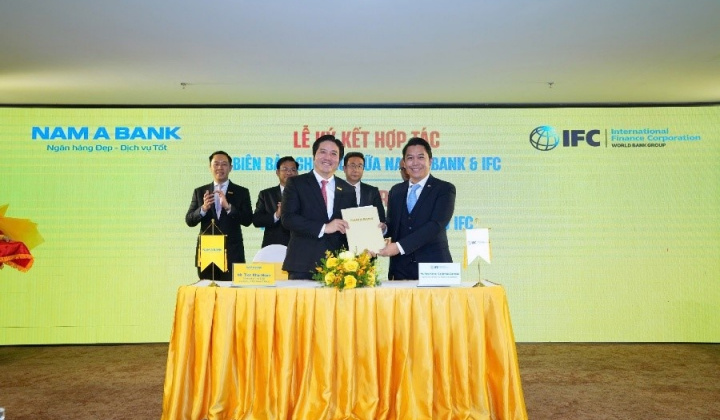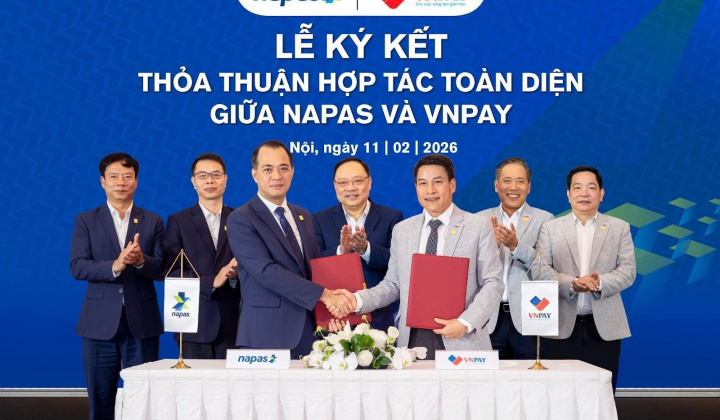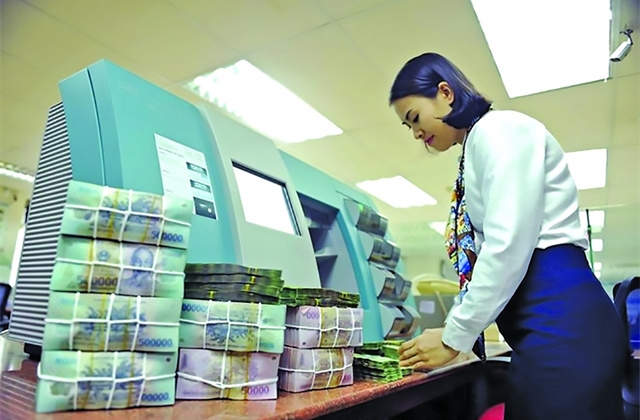Also in the Seminar were her central bank peers from Laos, Malaysia and Thailand, IMF Deputy Managing Director, Chief Representative of IFC office in Laos and the participation of a large number of representatives from ASEAN central banks and financial ministries, international organizations, and financial institutions in the region.
This is a high-level event on the sidelines of the 11th ASEAN Finance Ministers’ and Central Bank Governors’ Meeting (AFMGM) in 2024 to discuss long-term development trends in the world and how to take advantage of opportunities from these shifting trends to promote economic growth. The conference was co-organized by the IMF and the Bank of Laos in the context that the global and regional economies continue to face many difficulties, challenges and uncertainties that require joining hands to find solutions to overcome the headwinds.
At the Seminar, the IMF stated that, contrary to the prospect of a global economic slowdown and the risk of recession, the Asian region continues to maintain a solid outlook, likely to contribute about two-thirds of global growth in 2024. In particular, ASEAN continues to be recognized as a typical model of economic integration and cooperation; is increasingly becoming a dynamic economic region, likely to contribute about 10% of global GDP this year. The seminar highly appreciated Vietnam's macroeconomic achievements in recent years, especially the monetary policy management of the SBV that contributes much to maintaining the financial and economic stability in the region, bringing ASEAN to become a bright spot of global economic growth.

To find solutions to maintain the regional growth momentum in the context of a volatile world, central bankers and representatives of the IMF and IFC discussed the impacts of new development trends, including economic restructuring, demographic change, climate change adaptation, technology development, artificial intelligence and green transition, the functioning of the ASEAN economies in general as well as regional financial markets and monetary policy management of central banks in particular. The IMF believes that these trends bring both development opportunities and new challenges to regional economies; These are inevitable and ASEAN countries can only maintain sustainable development when they have appropriate response strategies that may mobilize the participation of all sectors and fields.
With a comprehensive view point on economics as well as profound experience in monetary and banking management, the central bank governors shared about the role of central banks in taking advantage of opportunities of the global shifting trends, as well as responding to the challenges of population aging and climate change, contributing to the national and regional prosperity. The Governor of the Bank of Laos emphasized the important responsibility of the central bank in promptly grasping and integrating long-term development trends into monetary policy management, assessing financial stability, and promoting green credit to small and medium enterprises - the backbone of the economy.
Discussing the topic of economic restructuring, Governor Nguyen Thi Hong stated that, from an agricultural economy with about 90% of workforce in agriculture, after 38 years of innovation, Vietnam's economy has actively transformed towards the industrialization and modernization and achieved impressive progresses. The Governor shared that one of the characteristics of the economic restructuring process in Vietnam is the parallel development of both industry and service sectors. In the context that Vietnam capital market is not adequately developed, the economy mainly relied on medium and long-term loans from banks, thus creating considerable pressure on the banking system and macroeconomic safety. The State Bank of Vietnam has been proactively implementing many solutions and policies to promote credit to meet the capital needs of the economy, directing credit capital flows into production and business sectors, priority sectors and other drivers of economic growth.
Sharing this view, Governor of the Malaysian central bank, Mr. Datuk Abdul Rasheed Ghaffour said that as an upper middle-income economy, Malaysia identifies industry and services as two main pillars, supporting and promoting the economic development to achieve the goal of joining the group of high-income countries.
Speakers at the Seminar all agreed that the reality of the economic restructuring process in countries shows that the central banks’ management of monetary policy to control inflation, to stabilize the macro economy and to implement credit policy has been making an important contribution to creating a foundation for sustainable economic development and promoting industrialization. The process of economic structural transformation in ASEAN countries also clearly show a new movement trend: the digital transformation and green transformation. The Governor of the State Bank of Vietnam said that, with the vital role in the economy, the Vietnamese banking industry always determines the pioneering task in the process of speeding -up the national digital transformation, as well as the important responsibility in "greening" the investment flow for sustainable development.
Regarding digital transformation, in recent times, the digital transformation of the banking industry has taken place strongly and comprehensively on such aspects as: changing awareness, creating institutions, building technological infrastructure, providing more services and ensure security and safety. These are proven by remarkable growth figures in transactions, users and payment services. Digital banking has become a familiar part of the lives of people and businesses.

Secretary General Nguyen Quoc Hung and other VNBA delegates at the Seminar
Regarding green transformation, Governor Nguyen Thi Hong affirmed that as one of the countries most vulnerable to climate change, in recent years, Vietnam has always been proactive and actively implemented many activities to respond to climate change, targeting towards green growth and sustainable development. Challenges from climate change expose the Vietnamese banking industry to systemic risks, requiring the banking industry to review risk appetite, development strategies, and operational orientation; to reassess all affected subjects both directly and indirectly to shape a long-term strategy to ensure sustainable development.
Together with the whole country, the Vietnamese banking industry has proactively implemented practical actions to respond to climate change such as gradually building and improving the legal framework and appropriate credit and banking policies compatible with green growth goals; promulgating guidelines for risk classification in credit granting activities; updating international practices on risk management to respond to climate change; mobilizing financial resources and policy consultancy from international financial organizations to support projects responding to climate change. As a result, in the period 2017-2023, the system's outstanding credit balance for green fields grew by an average of more than 22% per annum. Vietnam is one of 38 developing markets that have made significant progress in their efforts to promote the banking and finance industry towards sustainable development, ranking highly compared to Asian countries in implementing a number of important content of the Paris Agreement.
In addition, the Seminar also listened to the views of the Governor of the Central Bank of Malaysia on the reform process in the economic and financial system to achieve climate sustainability goals, and the experience of the Governor of the Central Bank of Thailand Sethaput Suthiwartnarueput on the necessity of integrating the trend of population transition into financial and monetary policy planning, the perspective of Central Bank of Laos Governor Bounleua Sinxayvoravong on policy implications for the central bank to make the most of development opportunities in the new context.
Regarding all of the above issues, the speakers affirmed the consensus and solidarity of ASEAN countries in cooperating to deal with challenges caused by global development trends. Recently, central bank governors have directed to map out and implement the initiatives on Digital Transformation, Database Interconnection, ASEAN Financial Classification System (ASEAN Taxonomy), ASEAN Sustainable Banking Principles... The Seminar showed a belief that, with close cooperation, ASEAN central banks will together take advantage of opportunities and overcome challenges so that the regional banking industry can make a positive contribution to the economic development process of each country as well as the entire ASEAN region.
The participation of the SBV Governor as the main speaker at this event contributes to strengthening the special friendship and solidarity between Vietnam and Laos in general and the close cooperation of the two countries' central banks in particular.
VNBA News


